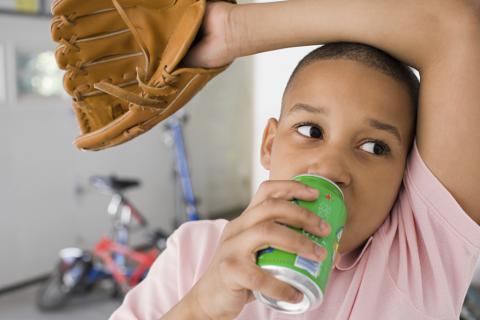
Soda taxes are taking off from coast to coast, and around the world, too. And while on the surface they *seem* like a great thing, are they actually working? And do they effectively tax the people who can afford it the least? Here's a short summary of what we know:
1. Where are they actually happening?
Berkeley passed a one cent-per-ounce tax on sugary drinks (soda, sweet teas, etc.) in November, which targets distributors. As of this March, the tax had already raised over $1.5 million for community programs like school gardens. Find out more here.
The City of Philadelphia is currently debating a proposed soda tax of three cents per ounce, which would also be levied on companies and raise over $95 million/year to support community programs.
And four additional cities in California, Boulder, and the state of Illinois are also consider taxes. Mexico already has a tax on soda and junk food, the UK is launching one soon. India and Indonesia are considering one as well. [1]
2. Do they work?
Yes in some ways, and it's too early to tell in others. Berkeley has already succeeded in generating important revenue for community programs. And in Mexico, consumption of sugary drinks fell by 12% during the first year of the tax. [2] And many are watching for intended health outcomes in the coming years as well.
3. Do they place an unfair burden on the poor?
Many are concerned that a sugary drink or soda tax puts and undue burden on those who can afford it the most. I.e. the tax is "regressive". Berkeley and Philadelphia have both levied the tax on distributors or producers, not consumers.
Whether or not they pass the cost onto consumers is the sticking point. In some cases they have not, for example if they're eager to retain their market in a certain location. In Mexico, for example, distributors passed on the increased cost on fruit drinks, but not soda.
A new brief from Research Watch summarizes useful research which "reviewed 11 studies on sugary drink taxes and found that any regressive impact was small, equivalent to less than $5 per household per year." [3]
So in summary, are soda taxes a good thing? The data and examples above are promising. Advocates are continuing to explore these and related measures like labeling, to help all of us identify which strategies can indeed have the greatest impact on our communities and kids.
We'll keep updating this information as we learn more, and please add any useful facts below. If you're a Philadelphia resident, you can also join our call to the City Council to pass the soda tax!
And check out this great summary from Elisa on why it's so important we limit consumption of soda!
[1] http://mobile.nytimes.com/2016/05/25/opinion/taxing-sugar-to-fund-a-city.html?smprod=nytcore-ipad&smid=nytcore-ipad-share&referer=https://t.co/nhqIcbBLpB
[2] http://well.blogs.nytimes.com/2016/01/06/mexican-soda-tax-followed-by-drop-in-sugary-drink-sales/
[3] https://d3n8a8pro7vhmx.cloudfront.net/heatlhyfoodamerica/pages/30/attachments/original/1464299034/Vol1Issue4ResearchWatch052616.pdf?1464299034



The views and opinions expressed in this post are those of the author(s) and do not necessarily reflect those of MomsRising.org.
MomsRising.org strongly encourages our readers to post comments in response to blog posts. We value diversity of opinions and perspectives. Our goals for this space are to be educational, thought-provoking, and respectful. So we actively moderate comments and we reserve the right to edit or remove comments that undermine these goals. Thanks!